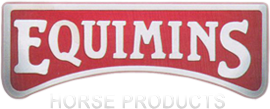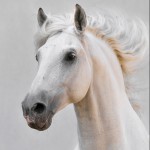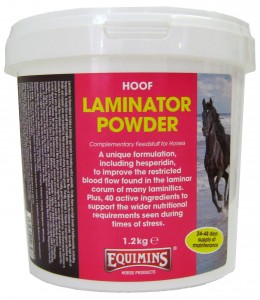What causes laminitis?
The spring grass is coming through, and that means that we as horse owners should be vigilant when it comes to laminitis and obesity in our horses. For horses and ponies that have previously had an episode of laminitis or are at risk of laminitis, this is more important than ever. Although the condition is most commonly associated with little fat ponies, any horse can get laminitis, as there are a number of possible causes.
Overweight – overweight horses and ponies are not as healthy as their trim field mates as extra weight increases strain on the horse or pony’s systems. This can make a horse more susceptible to laminitis. If you couple this with extreme stress, that can also cause laminitis.
Spring grass – well, not just ‘spring’ grass, but any feed that’s high in sugars and starches…like spring grass. An overload of this type of food can compromise the digestive system, which causes good bacteria to die, releases toxins into blood and can actually disrupt the flow of blood around the horse.
Concussion – concussion can happen at any time of the year, whether it’s caused by fast work on the lanes or even hard work on rock solid concrete. Concussion can damage the laminae in the hooves and this can cause laminitis.
Infection – horses with severe infections can also be susceptible to laminitis due to the toxins being released into the horse’s body.
Cushing’s – horses with Cushing’s disease are more susceptible to laminitis.
If you suspect your horse has laminitis, it is essential that you call the vet immediately as it is a life threatening condition.
To help prevent laminitis, a careful management regime should be followed. This may include restricted access to lush pasture, additional exercise to ensure the horse is the correct weight, reduction/removal of hard feed and introduction of supplements that help to support the horse’s body during this time, such as Laminator. To find out more, see the website.

 Equimins specialises in producing natural horse supplies, products and supplements for the major areas associated with caring for a horse. All products are proudly made in the UK and excellent specification quality products are of paramount importance. Using this blog we want to share some of the knowledge we have gained through nearly 30 years of experience.
Equimins specialises in producing natural horse supplies, products and supplements for the major areas associated with caring for a horse. All products are proudly made in the UK and excellent specification quality products are of paramount importance. Using this blog we want to share some of the knowledge we have gained through nearly 30 years of experience. 



